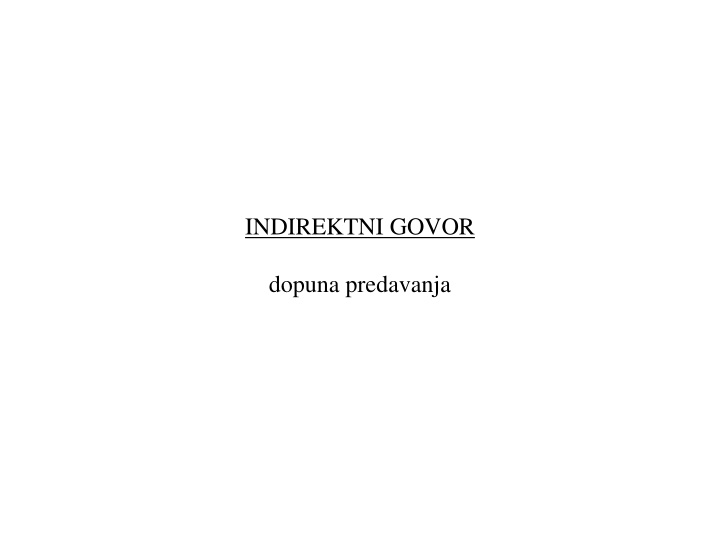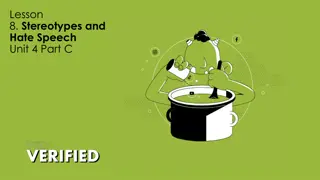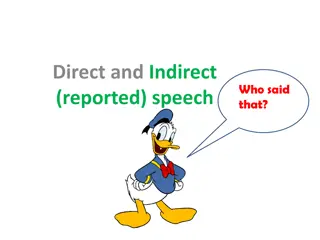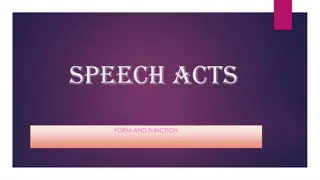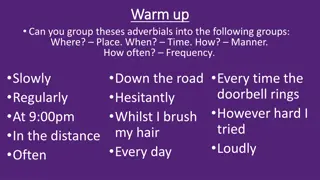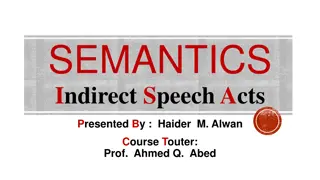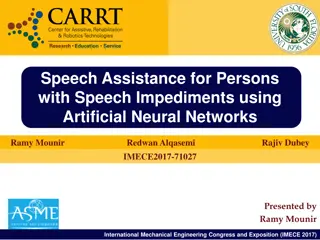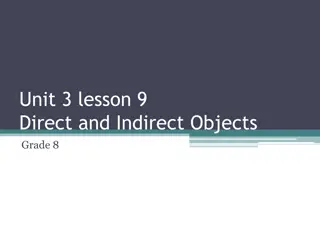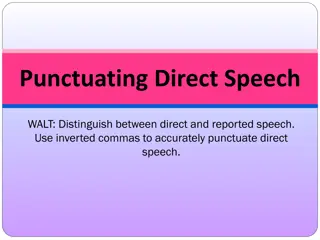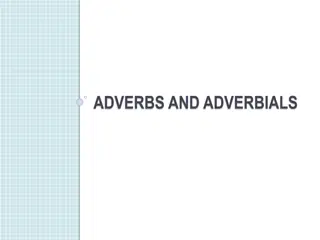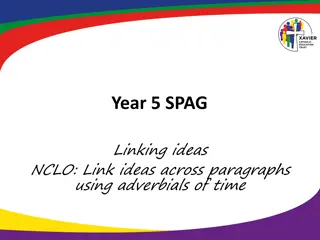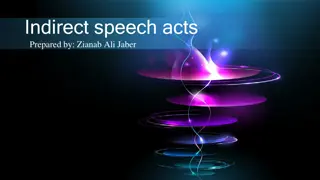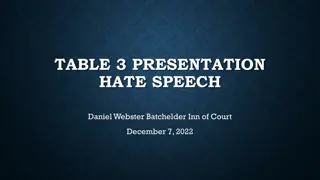Mastering Indirect Speech and Time Adverbials
Explore the nuances of indirect speech in English language with a focus on tense changes and adverbial phrases of time. Learn how to accurately report what someone said and correctly transform adverbs to match the context of the reported speech. Enhance your language skills with practical examples and visual aids.
Download Presentation

Please find below an Image/Link to download the presentation.
The content on the website is provided AS IS for your information and personal use only. It may not be sold, licensed, or shared on other websites without obtaining consent from the author.If you encounter any issues during the download, it is possible that the publisher has removed the file from their server.
You are allowed to download the files provided on this website for personal or commercial use, subject to the condition that they are used lawfully. All files are the property of their respective owners.
The content on the website is provided AS IS for your information and personal use only. It may not be sold, licensed, or shared on other websites without obtaining consent from the author.
E N D
Presentation Transcript
INDIREKTNI GOVOR dopuna predavanja
Tense present simple I like ice cream present continuous past simple past continuous Direct Speech Reported Speech She said (that) she liked ice cream. I am living in London She said she was living in London. I bought a car She said she had bought a car. I was walking along the street She said she had been walking along the street. present perfect I haven't seen Julie She said she hadn't seen Julie. I had taken English lessons before I ll see you later past perfect* She said she had taken English lessons before. will She said she would see me later. would* can could* shall should* might* I would help, but.. I can speak perfect English I could swim when I was four I shall come later I should call my mother "I might be late" She said she would help but... She said she could speak perfect English. She said she could swim when she was four. She said she would come later. She said she should call her mother She said she might be late She said she must study at the weekend She said she had to study at the weekend must "I must study at the weekend" * doesn't change
Adverbs and adverbial phrases of time change as follows: Direct today yesterday the day before yesterday tomorrow the day after tomorrow next week/year etc. last week/year etc. a year etc. ago Indirect that day the day before two days before the next day/the following day in two days' time the following week/year eth. the previous week/year etc. a year before/the previous year 'I saw her the day before yesterday,' he said = He said he'd seen her two days before. 'I'll do it tomorrow,' he promised = He promised that he would do it the next day. 'I'm starting the day after tomorrow, mother,' he said = He told his mother that he was starting in two days' time. She said, 'My father died a year ago' = She said that her father had died a year before/the previous year.
